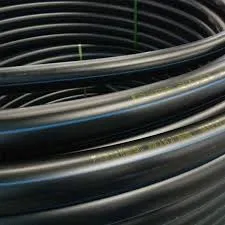Oct . 08, 2024 00:55 Back to list
hdpe natural sheet
Understanding HDPE Natural Sheets Properties and Applications
High-Density Polyethylene (HDPE) is a widely used thermoplastic polymer known for its high strength-to-density ratio, resistance to impact, and chemical stability. Among its many forms, HDPE natural sheets have found important applications across various industries due to their unique properties. In this article, we will explore what HDPE natural sheets are, their characteristics, and their practical applications.
What is HDPE?
HDPE is made from petroleum and is recognized for its high crystalline structure, which offers robustness and durability. It is a type of polyethylene with a higher density compared to other forms, such as low-density polyethylene (LDPE). This higher density contributes to its strength, making it an excellent material for different applications. HDPE can be produced in various colors and finishes; however, natural HDPE refers to the translucent, uncolored version that showcases its inherent qualities.
Properties of HDPE Natural Sheets
1. Durability HDPE natural sheets exhibit exceptional durability and can withstand significant wear and tear, making them ideal for high-traffic areas and demanding environments.
2. Chemical Resistance One of the most significant advantages of HDPE is its resistance to chemicals. It does not absorb water and is resistant to a wide range of solvents, acids, and bases.
3. Lightweight Despite its strength, HDPE is lightweight, which makes it easy to handle and transport. This property is particularly beneficial in applications where weight is a concern.
4. UV Resistance While HDPE natural sheets are not as resistant to UV rays as other materials, additives can be incorporated to enhance their UV stability, allowing for outdoor usage without significant degradation over time.
hdpe natural sheet

6. Recyclability HDPE is 100% recyclable, which contributes to its appeal in environmentally conscious markets. Recycled HDPE can be repurposed into various new products, contributing to a circular economy.
Applications of HDPE Natural Sheets
The properties of HDPE natural sheets make them suitable for a wide range of applications across different industries
1. Packaging HDPE natural sheets are commonly used in the packaging industry for making containers, bottles, and other packaging materials due to their impermeability and durability.
2. Construction In construction, HDPE sheets serve as vapor barriers and are used in various building products, including insulation and drainage systems.
3. Food Processing Given their chemical resistance and ease of cleaning, HDPE natural sheets are often used in the food processing industry, from countertops to packaging materials, ensuring hygiene and safety.
4. Agriculture Farmers use HDPE sheets for applications such as greenhouse covers and mulch films due to their ability to withstand outdoor conditions while promoting plant growth.
5. Signage and Displays The lightweight and durable nature of HDPE makes it a popular choice for signage and other display applications, both indoors and outdoors.
Conclusion
HDPE natural sheets are an essential material that offers a combination of durability, chemical resistance, and versatility. Their applications across packaging, construction, food processing, agriculture, and signage demonstrate the value they bring to various sectors. As industries continue to prioritize sustainable practices, the recyclability of HDPE further enhances its appeal, making it a favored choice for environmentally conscious solutions. Embracing the benefits of HDPE natural sheets can lead to innovative applications and improved performance in countless products.
-
High-Quality PPR Pipes and Fittings Durable ERA PPR & PVC PPR Solutions
NewsJul.08,2025
-
Black HDPE Cutting Board - Durable, Non-Porous & Food Safe HDPE Plastic Cutting Board
NewsJul.08,2025
-
High-Quality CPVC Panel Durable HDPE & PVC Panels Supplier
NewsJul.08,2025
-
Double PE Welding Rod Supplier - High Strength, Durable & Versatile Welding Solutions
NewsJul.07,2025
-
High-Quality PVC-O Pipe Supplier Durable 75mm PVC Pipe & Connections Leading PVC Pipe Company
NewsJul.07,2025
-
HDPE Drainage Pipe Supplier – Durable & Corrosion-Resistant Solutions
NewsJul.06,2025

